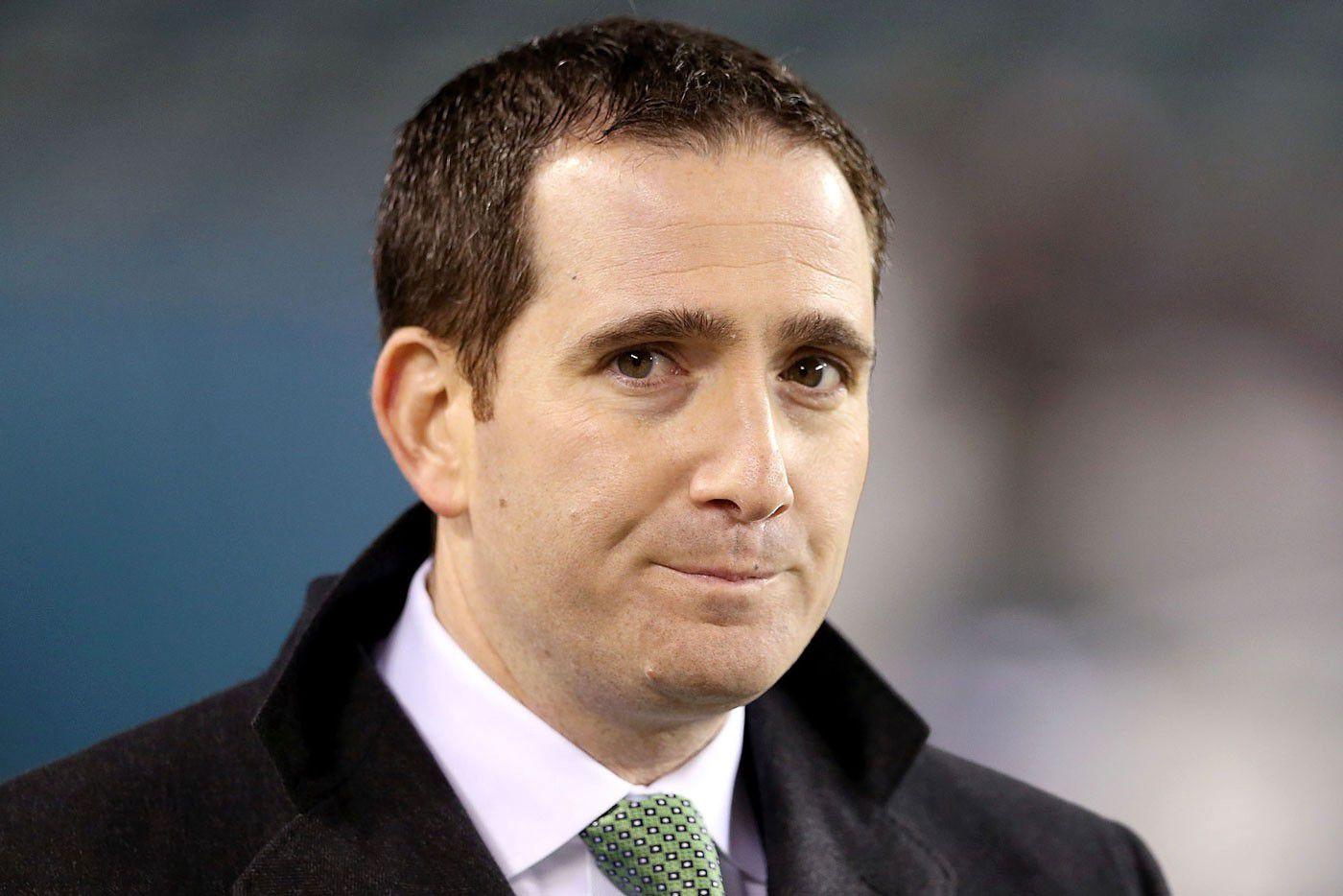If you want to be a famous general manager, you’d be wise to stay away from football. A betting man might consider baseball, which has produced Billy Beane, the mad scientist; Theo Epstein, the genius (and sacred Curse-Breaker, first of his name); Brian Cashman, the literal and (depending on your feelings toward pinstripes) perhaps figurative fart-machine operator; and Brian Sabean, the (ex?) warlock.
In the NFL, however, the most famous nonplayers are typically coaches (especially coaches-as-chiefs like Bill Belichick), owners (some of whom double as GMs, like Jerry Jones and formerly Al Davis), and referee Ed Hochuli’s pectoral muscles. None of this is to disparage the work of general managers, many of whom are swell, hard-working individuals who generally manage their teams quite well, even without the promise of being portrayed by Brad Pitt (though they have a shot at Kevin Costner!). That they are not household names says nothing of their competence; a famous general manager is not necessarily a good one. It’s just that, well, if you like sports and management and fame, you could find a better league than the NFL.

Which brings us to Eagles general manager Howie Roseman. He has seen some shit, and not only that: He’s seen some shit and he’s come back, a football Lazarus hell-bent on becoming something even rarer than a resurrected GM — a household name. Roseman snuck under the blackjack table with one last chip; just when everyone thought he was done, he found a way to pop back out. Now he’s bet it all — his future with the Eagles, his reputation, and a job he’s spent his entire life working to get, then get back, and then keep — on one player.
Roseman’s fate now rests in the hands of rookie quarterback Carson Wentz, who learned he was Philadelphia’s starter only a couple of weeks ago while lying in the middle of a cornfield.

Let’s start with a little history. Roseman joined the Eagles in 2000 as an intern, a year after Andy Reid was hired as the head coach. From there, Roseman climbed the ranks of the front office at a blistering pace; he was named general manager in 2010 at just 34, then the youngest age of any NFL GM ever. It didn’t take long for him to make his presence felt: In his first full offseason, he set about constructing what was deemed the Dream Team under Reid, signing Nnamdi Asomugha, Jason Babin, Ronnie Brown, Cullen Jenkins, Dominique Rodgers-Cromartie, Steve Smith (but not that one), and Vince Young. But woe unto he who refers to a dream as such before it comes true: The Eagles won just 12 games over the next two seasons. Fed up with the failure to produce, the team fired Reid on December 31, 2012. Chip Kelly replaced him the following month.
Philly went 10–6 in each of the coach’s first two seasons at the helm, and by the end of the 2014 campaign, he’d earned the faith of Eagles president Jeffrey Lurie. Roseman was demoted and GM duties were unofficially handed to Kelly in a vote of confidence; Roseman was relegated to managing the team’s salary cap. Then Kelly brought out the wrecking ball, studiously demolishing much of Roseman’s roster: He traded running back LeSean McCoy for linebacker Kiko Alonso, dealt quarterback Nick Foles in a package for Sam Bradford, and cut Pro Bowl offensive guard Evan Mathis and Trent Cole, who had moved to outside linebacker in Kelly’s 3–4 defense. Kelly also made a series of high-profile free-agent signings, committing a combined $103 million to Byron Maxwell and DeMarco Murray.
You know what happened next. Kelly and the 2015 Eagles failed to live up to their Super Bowl hype. The Maxwell and Murray acquisitions backfired; Murray openly complained about the coaching staff. Roseman seized the opportunity, reportedly convincing Lurie that Kelly, who had two years left on his contract upon his firing in December, was doomed.
Imagine getting fired. Imagine if HR forgot to walk you out of the building and confiscate your key fob, and you just kept showing up every Monday and coming to meetings anyway. Imagine if you did this until your new boss fucked up, and then suddenly you cleared your throat and sent a RED EXCLAMATION POINT IMPORTANT EMAIL to the whole office announcing that you bought donuts for everyone, and by the way you’ve been going through last year’s invoices and have thought of some really innovative ways to cut down on third-quarter costs. And then, voilà, you’re back in charge. This is basically what Roseman has done.

So now Roseman once again holds the reins in Philadelphia. He promptly set about dismantling the Kelly regime and rekindling, sort of, the Reid era, bringing in Doug Pederson, Reid’s longtime protégé, to coach. The Eagles fired Ed Marynowitz, Kelly’s vice president of player personnel; Roseman traded away Murray, Alonso, Maxwell, and other cornerstones of the Kelly roster. This time around, Roseman promised good, old-fashioned football; there would be none of the splashy, expensive acquisitions that landed the Eagles in trouble — or at least mediocrity — before.
But, see, here’s the thing about good, old-fashioned football: It’s boring. It’s really boring, and no way to make a name for football’s formerly youngest GM, the man who endured a purge long enough to carry out his own, the boy who dreamed of leading a front office and now has been given a second chance to do so. So Roseman traded up, and then up again, in this year’s NFL draft — and now there is Wentz, a quarterback out of FCS North Dakota State, taken at no. 2 overall. Days before the season, Roseman sent Bradford, with whom the team inked a two-year, $36 million deal less than six months ago, to the quarterback-starved Vikings, prompting a collective what.
To say that Roseman wants to build a new Eagles dynasty is an understatement. He estimates that he sent north of 1,000 letters to NFL teams in search of a job before he was first hired; he boasts about having had no backup plan. “I used to tell people when I was 13 years old I was going to be a GM in the National Football League,” he says.
Wentz looked improbably good in Sunday’s 29–10 win over Cleveland, going 22-for-37 for 278 yards with two touchdowns, including a 35-yarder that might have induced the closest thing to joy that Eagles fans have felt in a long time. This was, of course, against the Browns, so it may not have been the strongest of indicators for how he will fare this season. But either way, Roseman’s fate is now tethered to Wentz’s performance.
If Wentz thrives, Roseman’s gamble at no. 2 will prove that his tinkering was a work of genius all along. If he doesn’t? This time, then, the demotion might be permanent.
